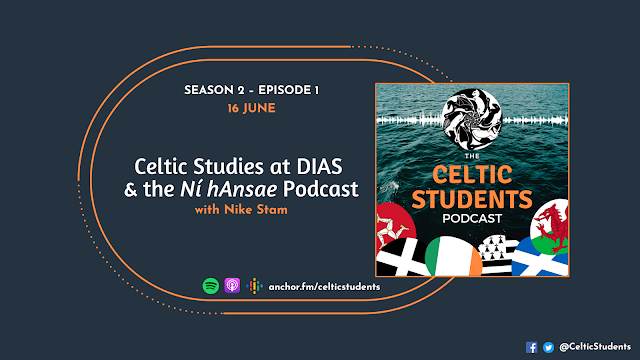Celtic Students Podcast, season 2, ep 2: Yn Greinneyder and Culture Vannin

In this episode, Erin McNulty talks with Ruth Keggin-Gell, yn Greinneyder at Culture Vannin , an organisation that promotes the Manx language in the Isle of Man. They discuss the role of the Greinneyder, exciting future plans for Manx, the impact of the COVID-19 pandemic on Culture Vannin’s work, as well as how to make traditional Manx cake! Ayns yn episode shoh, ta Erin McNulty loayrt rish Ruth Keggin-Gell, yn Greinneyder ec Cultoor Vannin , commyn ta cur er oaie y Ghaelg ayns Mannin. T’ad loayrt mychione ny churrymyn jeh’n Greinneyder, ny plannyn greesee son y Ghaelg sy traa ry-heet, ny eiyrtyssyn jeh COVID-19 er yn obbyr ec Cultoor Vannin, as yn aght dy ghaarlaghey berreen Manninagh tradishoonagh! Links & notes: 2017-2021 Manx Language Strategy Some Bonnag recipes (and a better description of it than we could come up with!) LearnManx.com – Learning materials for beginners, intermediates, and advanced speakers. manxmusic.com – A place to start exp...


